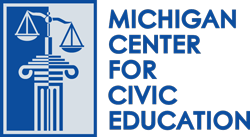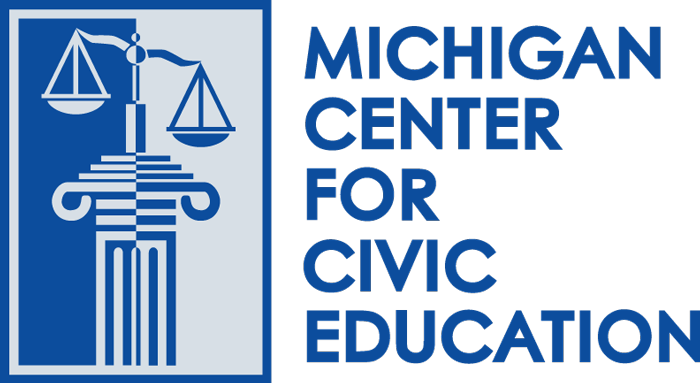CIRCLE Fact Sheet: Information Literacy Crucial to High School Civics
January 2014
This fact sheet summarizes findings about the teaching of information literacy in high school civics and government courses. More than 700 teachers responded to a survey, and nearly all of them reported spending time on news analysis, current events discussion, and other information literacy skills and topics in their classes.
The research also showed, however, that information literacy is more likely to be taught in AP/honors classes than in required courses and that more than half of teachers do not feel very confident in teaching information literacy.
Guidebook: Six Proven Practices for Effective Civic Learning
January 2014
National Center for Learning and Civic Engagement, Education Commission of the States
This Guidebook is aimed at educators and policymakers and offers effective models of civics and service-learning that can be incorporate into the classroom and community.
College, Career, and Civic Life (C3) Framework for Social Studies State Standards
September 2013
The result of a three year state-led collaborative effort, the College, Career, and Civic Life (C3) Framework for Social Studies State Standards was developed to serve two audiences: for states to upgrade their state social studies standards and for practitioners — local school districts, schools, teachers and curriculum writers — to strengthen their social studies programs. Its objectives are to: a) enhance the rigor of the social studies disciplines; b) build critical thinking, problem solving, and participatory skills to become engaged citizens; and c) align academic programs to the Common Core State Standards for English Language Arts and Literacy in History/Social Studies.
The Fact Sheet is also available at www.socialstudies.org/C3.
State Civic Education Requirements Fact Sheet
September 2012
The Center for Information & Research on Civic Learning and Engagement (CIRCLE) has analyzed the standards, course requirements, and mandatory assessments relevant to civic education in all 50 states plus the District of Columbia. This is the first such scan in 5 years.
The Fact Sheet is also available on CIRCLE’s website.
Education Commission of the States – Legislative Updates
September 2013
Since 2003, the National Center for Learning and Civic Engagement (NCLCE) at the Education Commission of the States (ECS) has periodically conducted a comprehensive 50-state civic education policy scan to identify adopted policies that encourage, support, and advance civic learning and engagement for P-20 students. While the role that civic education plays in public schools has been reduced in the past 50 years, the civic education field continues to make significant strides in identifying best practices for civic education. As evident in NCLCE’s most recent 50-state policy scan, some states have recognized such best practices by enacting policy on “civics,” “citizenship education,” and “social studies.”
Visit the Civic Education Policy Database at http://www.ecs.org/html/educationIssues/CitizenshipEducation/CitEdDB_intro.asp.
All Together Now: Collaboration and Innovation for Youth Engagement: The Report of the Commission on Youth Voting and Civic Knowledge
Center for Information & Research on Civic Learning and Engagement
October 2013
Based in part on surveys from more than 6,000 young people and more than 700 civics and government teachers, the report presents new findings relevant to increasing youth voter turnout and improving civic education. It makes specific recommendations that are supported by cutting-edge research.
A report summary is available at http://www.civicyouth.org/commission-on-youth-voting-and-civic-knowledge-releases-report/
CIRCLE has alo developed a reflection guide for teachers that includes several noteworthy findings from the survey and encourages educators to consider how their experiences are similar—and how they may differ. The guide also includes specific recommendations from the report and invites teachers to reflect on which ones would or would not work in their classrooms, and to think about any additional resources and support they may need to implement.
Guardian of Democracy: The Civic Mission of Schools Report
September 2011
The much anticipated follow up to the 2003 Civic Mission of Schools’ Report. The report is an urgent call for action to restore the historic civic mission of our nation’s schools. This new report provides research-based evidence of the decline in civic learning in American schools and presents six proven practices that should be at the heart of every school’s approach to civic learning. It also provides recommendations for education policymakers to ensure every student acquires the civic skills and knowledge needed for an informed, engaged citizenry.
The report is also available on the Campaign’s website www.civicmissionofschools.org.
Advancing Civic Learning and Engagement in Democracy: A Road Map and Call to Action
January 2012
In this report, the US Department of Education outlines directions for advancing civic learning and democratic engagement from grade school to graduate school. It concludes by proposing nine steps the Department will take to advance civic learning across American education.
Flunking Civics: Why America’s Kids Know So Little
May 2011
May ABA Journal
The American Bar Association publication the “ABA Journal” featured civic education in its May 2011 Issue. This is the lead article from that publication.
High Schools, Civics, and Citizenship: What Social Studies Teachers Think and Do
September 2010
American Enterprise Institute, September 2010.
This study revolves around the question: what are teachers trying to teach our youth about citizenship and what it means to be an American? The findings are based on a national, random sample survey of 866 public high school social studies teachers, an oversample survey of 245 Catholic and private high school social studies teachers, and three focus groups.

